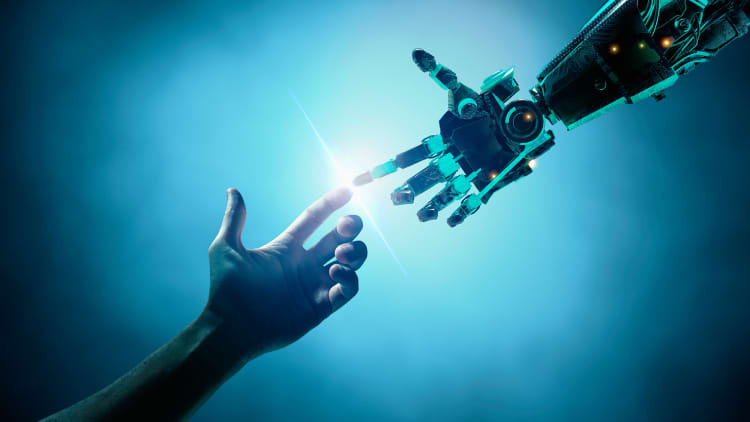
With the spawn of the internet and proliferation of mobile phones, it may seem like technology completely transformed the past two decades. But we're still just at the start, according to Sundar Pichai, CEO of Google.
In Alphabet's annual founder's letter, Pichai documented Google's accomplishments, and homed in on the potential of artificial intelligence. Google's AI system AlphaGo recently beat one of the world's best players of the ancient and complex Chinese game of Weiqi, which is better known as Go — and Pichai was clear that they're not just playing around.
"The implications for this victory are, literally, game changing — and the ultimate winner is humanity," Pichai wrote. "This is another important step toward creating artificial intelligence that can help us in everything from accomplishing our daily tasks and travels to eventually tackling even bigger challenges like climate change and cancer diagnosis."
Pichai's comments come at a time when artificial intelligence has been the source of intense debate among technologists. Microsoft co-founder Bill Gates, physicist Stephen Hawking and Tesla CEO Elon Musk have all hesitated to endorse the technology or have warned of its dangers, while others, like Facebook's Mark Zuckerberg, have said we should not be afraid of AI.
Right now, Google works across screens, Pichai said, not just computers, but phones, wrists, cars and virtual reality devices. But Pichai predicts that these devices will be replaced by the more powerful forces of artificial intelligence.
"Looking to the future, the next big step will be for the very concept of the 'device' to fade away," Pichai wrote. "Over time, the computer itself — whatever its form factor — will be an intelligent assistant helping you through your day. We will move from mobile first to an AI first world."
— CNBC's Saheli Roy Choudhury and Sarah Whitten contributed to this report.




